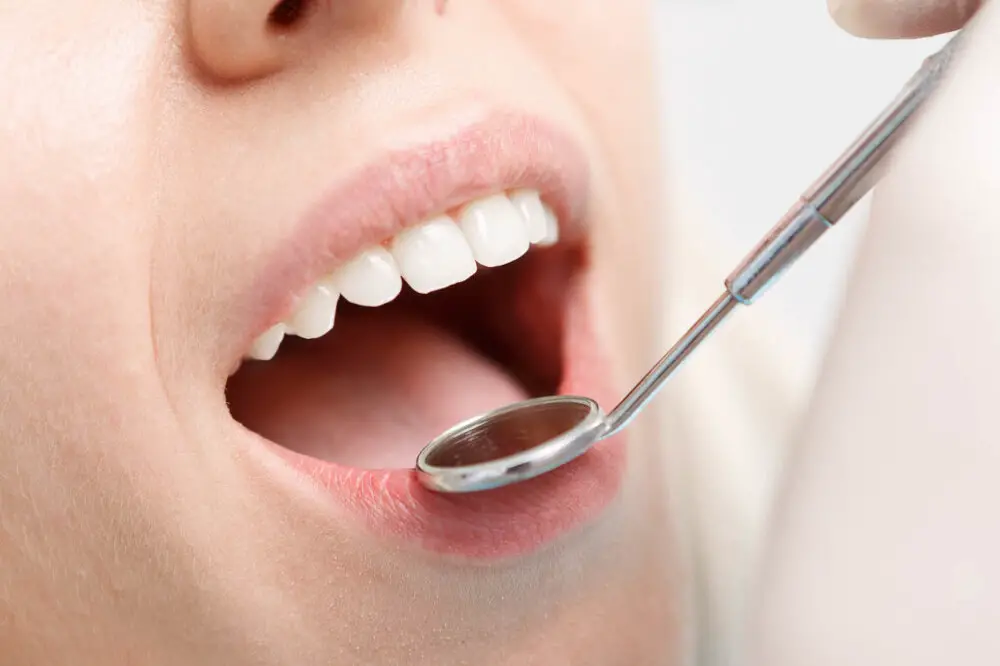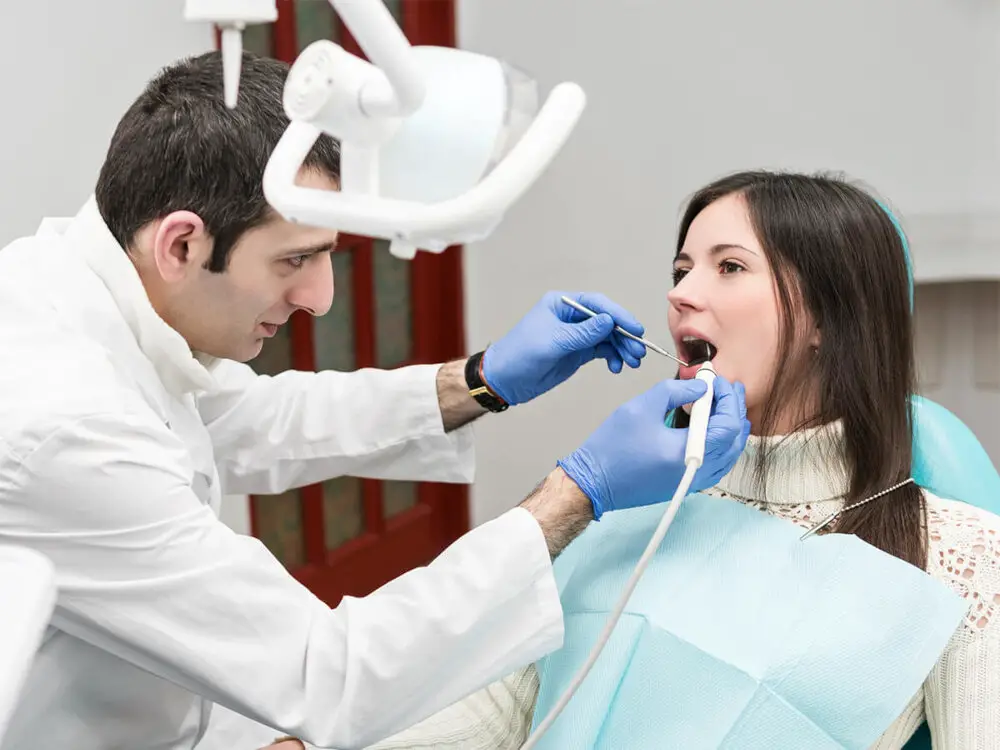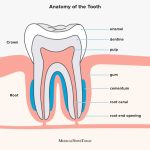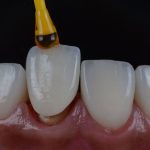Why Do Your Teeth Hurt When You’re Sick? Exploring the Connection Between Illness and Dental Pain

It’s a common experience – you’re feeling under the weather with a cold or flu, and suddenly your teeth start to hurt. It might seem like an odd symptom, but there’s actually a strong connection between illness and dental pain. While it’s not always the case, toothaches or sensitivity can be a sign that your body is fighting off an infection. By understanding this link, you can take steps to manage your dental discomfort while you recover from your illness. When we think about the causes of dental pain, we often focus on issues like cavities, gum disease, or trauma. However, there are actually many other factors that can impact the health of your teeth and gums. Illness is one of these factors, and it can affect your oral health in a number of ways. For example, viral or bacterial infections can cause inflammation and swelling in the body, which can put pressure on the nerves and blood vessels around the teeth. This can lead to pain, sensitivity, or even tooth damage in some cases. Additionally, some medications that are commonly used to treat illnesses can have side effects that impact dental health, such as dry mouth or changes in saliva production. To better understand the complex relationship between illness and dental pain, it’s important to explore the different ways that these factors can interact.
Illness and dental pain are two common experiences that most people have encountered at some point in their lives. Surprisingly, these two seemingly unrelated conditions are often interconnected, with one leading to the other. When you’re sick, your immune system kicks into high gear to fight off the infection, and this can cause inflammation throughout your body, including in your teeth and gums. This inflammation can manifest as dental pain, making your teeth and gums sensitive and sore. In some cases, the illness itself can also affect your oral health, as certain viruses and bacteria can cause dental problems such as cavities and gum disease. Understanding the connection between illness and dental pain is crucial in managing both conditions and maintaining good overall health.
Understanding the connection between illness and dental pain is crucial for maintaining overall health and wellness. Dental pain can often be a symptom of an underlying health condition, such as sinusitis, which can cause pressure and pain in the teeth and gums. Additionally, illnesses such as diabetes can increase the risk of tooth decay and gum disease, leading to chronic dental pain. By recognizing the relationship between illness and dental pain, individuals can take proactive steps to address their symptoms and prevent future dental problems. This may include seeking medical treatment for underlying health conditions, practicing good oral hygiene, and visiting a dentist regularly for checkups and cleanings. Overall, understanding the connection between illness and dental pain is essential for promoting optimal health and well-being.
Sinus Infections and Tooth Pain

Sinus infections and tooth pain are commonly associated. The sinuses are situated close to the upper teeth, and when they become inflamed, the pressure can cause tooth pain. Sinus infections can also lead to tooth sensitivity and discomfort when biting or chewing. Additionally, sinus infections can cause sinus pressure and headaches, which can further exacerbate tooth pain. It is essential to distinguish between sinus-related tooth pain and other dental issues to receive proper treatment. If you experience tooth pain alongside sinus symptoms, it is recommended to visit a medical professional to determine the underlying cause and receive appropriate treatment. Sinus infections are often caused by viral or bacterial infections, and they can lead to a range of uncomfortable symptoms. Alongside tooth pain, sufferers may experience nasal congestion, coughing, sore throat, and fatigue. It is essential to treat sinus infections promptly to avoid further complications, such as chronic sinusitis. Treatment options for sinus infections include over-the-counter pain relief medication, nasal decongestants, and antibiotics. Additionally, home remedies such as steam inhalation, warm compresses, and saline nasal sprays can also be effective in reducing symptoms. By treating the underlying cause of the tooth pain, patients can alleviate their discomfort and prevent further dental issues.
Sinus infections, also known as sinusitis, occur when the sinuses become inflamed or infected. The sinuses are air-filled cavities located behind the forehead, cheeks, and eyes. When they become blocked, either due to allergies, a cold, or other respiratory infection, mucus builds up and bacteria can grow. This can lead to symptoms such as facial pain or pressure, nasal congestion, headache, fatigue, and a cough that often worsens at night. In some cases, sinusitis can also cause dental pain and sensitivity, as the roots of the upper teeth are located close to the sinuses. It’s important to seek medical attention if you suspect a sinus infection, as it can lead to complications if left untreated.
Sinus infections can cause tooth pain due to their close proximity to each other. The sinuses are located in the upper part of the jawbone, and when they become inflamed, they can put pressure on the teeth, causing pain. The pain can be felt in the upper teeth, particularly the molars, and can be intense and throbbing. Additionally, the sinuses are connected to the roots of some of the upper teeth, and an infection in the sinuses can spread to the teeth, causing further pain and discomfort. Sinus infections can also lead to other dental issues, such as gum disease, as the sinuses can cause inflammation and irritation in the gums. Overall, it’s important to treat sinus infections promptly to prevent dental pain and other related issues.
Sinus infections and tooth pain often go hand-in-hand, causing discomfort and frustration for those affected. Fortunately, there are several treatment options available to alleviate symptoms and promote healing. Antibiotics can be prescribed to combat bacterial infections, while decongestants and antihistamines may be recommended to reduce inflammation and congestion. Pain relievers such as ibuprofen or acetaminophen can help manage discomfort. In severe cases, surgical intervention may be necessary. It is important to address both sinus and dental issues promptly to prevent further complications and promote overall health and well-being. Proper oral hygiene, a balanced diet, and regular check-ups with a dentist can also help prevent tooth pain and related issues.
Acid Reflux and Tooth Sensitivity

Acid reflux is a digestive disorder that occurs when stomach acid or bile flows back into the esophagus, causing irritation and inflammation. This condition can cause a variety of symptoms, including heartburn, bloating, nausea, and chest pain. However, many people are unaware that acid reflux can also affect their dental health. When stomach acid enters the mouth, it can erode tooth enamel and cause tooth sensitivity. This erosion can also lead to cavities, gum disease, and other oral health problems. To prevent acid reflux-related dental damage, it is important to manage the condition with medication, lifestyle changes, and good oral hygiene. Tooth sensitivity is a common dental problem that affects millions of people worldwide. This condition occurs when the protective layer of tooth enamel is worn away, exposing the sensitive dentin layer underneath. Tooth sensitivity can be caused by a variety of factors, including gum disease, tooth decay, and acid erosion. When acid from the stomach enters the mouth due to acid reflux, it can erode tooth enamel and cause tooth sensitivity. This can make it difficult to eat, drink, and brush your teeth comfortably. To manage tooth sensitivity caused by acid reflux, it is important to speak with your dentist and develop a treatment plan that addresses the underlying cause of the condition.
Acid reflux is a condition where stomach acid flows back up into the esophagus, resulting in a burning sensation in the chest and throat. This discomfort is often referred to as heartburn and can be accompanied by other symptoms such as regurgitation, difficulty swallowing, and a sour taste in the mouth. Acid reflux can occur due to a variety of factors including a weakened lower esophageal sphincter, obesity, pregnancy, and certain medications. If left untreated, chronic acid reflux can lead to more serious complications such as esophagitis or even esophageal cancer. It is important to seek medical attention if you experience persistent acid reflux symptoms.
Acid reflux, also known as gastroesophageal reflux disease (GERD), is a condition in which stomach acid flows back into the esophagus, leading to irritation and inflammation. The acid can also make its way to the mouth and cause tooth sensitivity and pain. The enamel on teeth is the hardest substance in the body, but it is vulnerable to erosion from acids. Acid reflux can wear away the enamel, exposing the softer dentin layer underneath. This can result in tooth sensitivity to hot or cold temperatures, as well as pain when chewing or biting down. Additionally, the acid can cause tooth decay, which can also lead to pain and sensitivity. It is important to address acid reflux and seek treatment to prevent further damage to the teeth and overall health.
Acid reflux and tooth sensitivity can be a challenging combination to deal with, but fortunately, there are several treatment options available. One of the most effective ways to manage acid reflux is to make lifestyle changes such as avoiding trigger foods, eating smaller meals, and not lying down immediately after eating. Over-the-counter antacids and prescription medications can also help reduce acid production and ease symptoms. For tooth sensitivity, using desensitizing toothpaste, avoiding acidic foods and drinks, and practicing good oral hygiene by brushing and flossing regularly can help alleviate the discomfort. In more severe cases, dental treatments such as fillings, crowns, or root canals may be necessary. It’s essential to talk to a dental or medical professional to determine the best course of action for your specific needs.
Dehydration and Dry Mouth

Dehydration and dry mouth are two of the most common culprits behind dental pain during illness. When the body is dehydrated, it means that it is not getting enough fluids to carry out its normal functions. This can cause a number of problems, including dry mouth. Dry mouth occurs when there is not enough saliva in the mouth to keep it moist. Saliva is important for keeping the teeth clean and for neutralizing the acids that can cause tooth decay. When there is not enough saliva, the teeth can become more susceptible to cavities and other dental problems. Dehydration can also lead to tooth pain because it can cause the gums to recede. When the gums recede, the roots of the teeth become exposed, which can make them more sensitive to hot and cold temperatures. This can cause pain and discomfort when eating or drinking. To prevent dehydration and dry mouth, it is important to drink plenty of fluids throughout the day. This can include water, tea, and other non-sugary beverages. It is also important to avoid sugary and acidic foods and drinks, which can increase the risk of tooth decay and other dental problems.
Dehydration occurs when your body loses more fluids than it takes in, resulting in an imbalance in the body’s electrolytes. This can happen due to a variety of factors, including illness, excessive sweating, or not drinking enough water. Symptoms of dehydration can include dry mouth and throat, dark urine, fatigue, dizziness, and confusion. In severe cases, dehydration can lead to fainting, seizures, and even death. It’s important to stay hydrated, especially when you’re sick, to ensure that your body can function properly and recover quickly. Drinking plenty of fluids and eating water-rich foods can help prevent dehydration and keep your body healthy.
Dehydration can lead to dry mouth and tooth pain due to the lack of saliva, which is essential for maintaining oral health. Saliva helps to neutralize acids that can erode tooth enamel and cause decay. It also contains minerals that strengthen teeth and protect against bacteria. Without enough saliva, the mouth can become dry, making it difficult to swallow and speak. Dry mouth can also cause bad breath and increase the risk of infection. In addition, dehydration can cause the body to pull water from tissues, including the gums, which can lead to gum recession and tooth sensitivity. Therefore, it is important to stay hydrated and drink plenty of water to maintain good oral health and prevent tooth pain.
Dehydration and dry mouth are two common conditions that can cause discomfort in many people, especially during an illness. Fortunately, there are several treatment options that can provide relief and help prevent further complications. One of the most effective ways to combat dehydration is to drink plenty of water and other fluids throughout the day. This can help replenish the body’s lost fluids and prevent further dehydration. Additionally, oral rehydration solutions, which contain a balance of electrolytes and water, can help restore hydration levels quickly. For dry mouth, there are several options available, including over-the-counter saliva substitutes and prescription medications that can help stimulate saliva production. In severe cases, a doctor may recommend lifestyle changes, such as avoiding certain medications or using a humidifier, to help alleviate symptoms.
Medications and Dental Side Effects

Medications are an essential aspect of treating various illnesses and health conditions, but they can also have side effects that affect your dental health. Some medications can cause dry mouth, which can lead to tooth decay and gum disease. Dry mouth occurs when the salivary glands do not produce enough saliva to keep the mouth moist. This can be caused by certain medications that reduce saliva production, such as antihistamines, pain relievers, and decongestants. Dry mouth can also be a side effect of radiation therapy and chemotherapy. Without enough saliva to wash away food particles and neutralize acids, bacteria can thrive in the mouth, leading to tooth decay, gum disease, and bad breath. Another side effect of some medications is gum overgrowth. This occurs when the gum tissue around the teeth becomes swollen and starts to grow over the teeth. This can make it difficult to clean the teeth properly, leading to plaque buildup and tooth decay. Medications such as calcium channel blockers, which are used to treat high blood pressure and heart disease, can cause gum overgrowth. If you are taking medication and notice any changes in your dental health, it is important to inform your dentist. Your dentist can work with your healthcare provider to adjust your medication or recommend preventive measures to protect your dental health.
Medications are often prescribed to treat various illnesses and medical conditions, but they can also have potential dental side effects. For instance, certain antibiotics such as tetracycline and doxycycline can cause tooth discoloration and enamel hypoplasia, while antihistamines and decongestants can cause dry mouth, which increases the risk of tooth decay and gum disease. Additionally, some medications used to treat high blood pressure and heart disease can cause gingival overgrowth, a condition characterized by an abnormal growth of gum tissue that can lead to gum recession and tooth sensitivity. Therefore, it is important for patients to inform their dentists of any medications they are taking to prevent or manage these potential dental side effects.
There are several medications that can cause tooth pain as a side effect, including bisphosphonates, a class of drugs commonly used to treat osteoporosis and cancer. These medications can cause a condition called osteonecrosis of the jaw, which is characterized by the death of bone tissue in the jaw. Another medication that can cause tooth pain is doxycycline, an antibiotic commonly used to treat bacterial infections. Doxycycline can cause tooth discoloration and can also affect the development of teeth in children. In addition, some chemotherapy drugs can cause tooth pain by damaging the lining of the mouth and creating an environment that is conducive to infection. If you experience tooth pain while taking any medication, it is important to talk to your doctor or dentist about your symptoms.
When taking medications, it is important to be aware of the potential dental side effects that may occur. One common side effect is dry mouth, which can increase the risk of cavities and gum disease. To manage dry mouth, drink plenty of water and chew sugar-free gum or suck on sugar-free candy to stimulate saliva production. Another side effect is gum overgrowth, which can occur with certain medications such as anticonvulsants and immunosuppressants. Regular dental cleanings and proper oral hygiene can help manage gum overgrowth. It is important to inform your dentist of any medications you are taking to ensure proper management of any dental side effects.
Dental pain is a common symptom experienced during illness, and the connection between the two is often overlooked. However, research has shown that there are several ways in which illness can lead to dental pain. For example, sinus infections can cause pressure to build up in the sinuses, which can then put pressure on the teeth and gums. Additionally, some illnesses, such as the flu, can cause dehydration, which can lead to dry mouth and an increase in bacteria growth in the mouth. This increase in bacteria can then lead to cavities and tooth decay. Furthermore, medications taken during illness can also have side effects that affect oral health, such as dry mouth or changes in the pH level of saliva. Therefore, it is important to be aware of the link between illness and dental pain and to take steps to maintain good oral hygiene and seek dental care if necessary.
Tooth pain during an illness can be a sign of a serious dental issue or a symptom of the underlying disease. Consulting a dentist is crucial in such situations as they can diagnose and treat the dental problem appropriately. Ignoring tooth pain during illness can lead to complications, such as abscesses, which can cause further damage to the teeth and gums. Moreover, some medications used to manage illness symptoms can have adverse effects on oral health. Dentists can provide advice on how to maintain good oral hygiene during an illness and prescribe medication that won’t harm the teeth and gums. Seeking prompt dental care during an illness can help prevent long-term dental problems and ensure a speedy recovery.
During times of illness, it’s easy to neglect our dental health as we focus on recovering from our symptoms. However, it’s important to remember that our oral health is directly linked to our overall health. Neglecting our dental hygiene during times of illness can lead to a range of problems, from tooth decay and bad breath to more serious infections. Additionally, certain illnesses can cause dental pain or discomfort, making it even more crucial to prioritize our dental health. By making sure to brush and floss regularly, staying hydrated, and seeking dental care if necessary, we can help prevent any dental issues from exacerbating our illness and ensure that we’re taking care of our overall health.
Conclusion

In conclusion, the relationship between illness and dental pain is a complex and multifactorial topic. While there are several possible explanations for why teeth may hurt when one is sick, it is clear that the immune system plays a significant role in this process. Whether it is due to sinus pressure, inflammation, or a compromised immune response, dental pain can be a frustrating and uncomfortable symptom of illness. Therefore, it is important to practice good oral hygiene and seek medical attention if dental pain persists or worsens, especially in conjunction with other symptoms of illness. By taking care of our bodies and addressing dental pain promptly, we can minimize discomfort and prioritize our overall health and well-being.






